The Ten Best Movies of 2023
Foreword: My list has been set for months, but I couldn’t resist the urge to tinker with it obsessively until I realized, shit, we are just about to enter the sixth calendar month of the next year. Anyway, here it is. Fashionably late is better than never.
There will be spoilers for some of these.
2023 was a homecoming for me w/r/t movie watching. After having had the passion beaten out of me entirely in 2020, I slowly recuperated in the years 2021-2022, mostly discovering gems like Contact, House of Games, and Y tu mamá también. I saw a handful of exceptional new releases in 21-22, no doubt: Tar, Everything Everywhere All at Once, Bones and All, The Worst Person in the World, The Beatles: Get Back. But whether it was my own recovery or that 2023 was truly the year the 2020s emerged as a great movie decade matters little. As Richard Brody wrote a few years back (and Bilge Ebiri last year and probably a few other critics, too), "every year is a good year for movies if one is willing to be wowed by movies." 2023 was the year that, once again, I allowed myself to be wowed.
Honorable Mentions:
Knock at the Cabin - An early gift last year, when it still kind of felt like 2022. Shyamalan's earnestness often overshadows his formal precision. I say they go hand-in-hand: an apocalypse movie that asserts kindness never dies can be told best using techniques from a time when such hope was not so rare.
The Iron Claw - Melodrama isn't dead, it just got sweaty. Durkin is too literal a filmmaker to nudge this toward masterpiece status, but that's okay: he sets the table for a weepy script and great actors to tell a moving tale about family, legacy, masculinity, and, ultimately, acceptance. A surprise win for me. Needed more Texas, though.
The Boy and the Heron - Was certainly taken with the art direction, but I still need time to decide if its stream of consciousness approach to death and grieving is great. Ask me when I'm 82.
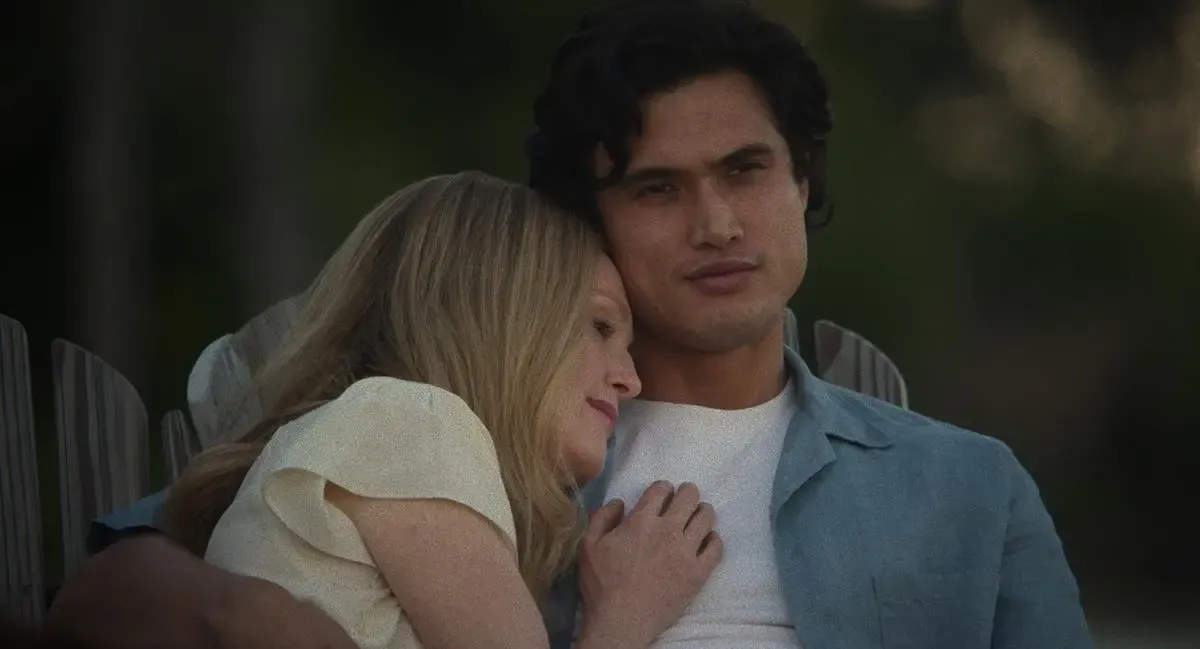
10. May December
I was bowled over by May December’s perfect pitch; its capacity to depict sexual trauma and its generational echoes with both wit and sadness. It’s perfectly calibrated, reflecting its subject’s carefully manicured, house of cards zthability and using it as a magnifying glass to interrogate the scabs that have long covered the wounds of her actions. It’s rare to find filmmakers that are courageous enough to tackle the subject of sexual abuse, and Todd Haynes–working from an exceptional script by Samy Burch–proves he’s worthy of the challenge.
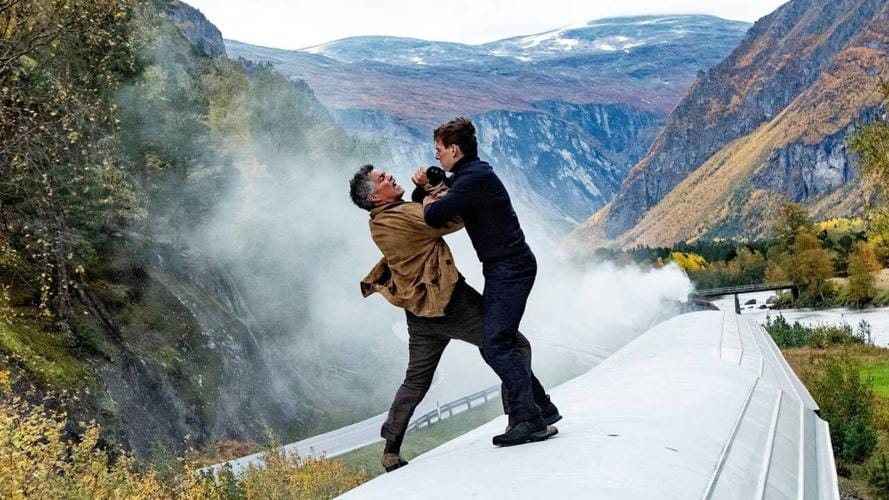
9. Mission: Impossible - Dead Reckoning Part One
Another perfectly calibrated work, although on a much larger scale and to a much different end. It’s impossible for me to separate my feelings about the M:I series from a primordial sense of connection to its protagonist Ethan Hunt, after whom I am named. Each entry in the franchise is an event for me, a tightrope walk between my parasocial fealty and my hardcore critical impulses–my compulsion to prove, by way of tearing many of them down, that American blockbuster movies do matter. Yet there’s not a single MI film I dislike. The reason I think the series works, and after 27 years defiantly refuses to lose steam, is its commitment to being like an evolving piece of music. Each entry is a variation on a main theme, with a new director offering his take on the constituent parts that make M:I, M:I. John Woo’s M:I 2 is kind of like Eurodance; McQuarrie’s second outing, Fallout, is a bit like jazz. This one? It’s opera.
The variations have grown more subtle since Cruise anointed Christopher McQuarrie as his analogue director and effectively commandeered the franchise as his own massive playground. (Do I have a piece of evidence to support that claim? Just one, but it’s crucial: the very first credit in the opening credits sequence for DRPO cites the movie as A TOM CRUISE PRODUCTION.) But 1. That doesn’t matter so much when the song sounds this good. And 2. As the budget climbs, so does the ambition: DRPO is shockingly, refreshingly political. I mean, the director of the CIA buys the AI-powered MacGuffin. Razor-thin veil for arms dealing, in my opinion. There’s always more to say about Mission: Impossible (the train sequence!!!) and I’ll probably say it when DRP2* arrives. Then again, my capsule could just be this.
*no longer titled such, but no new title has been announced.
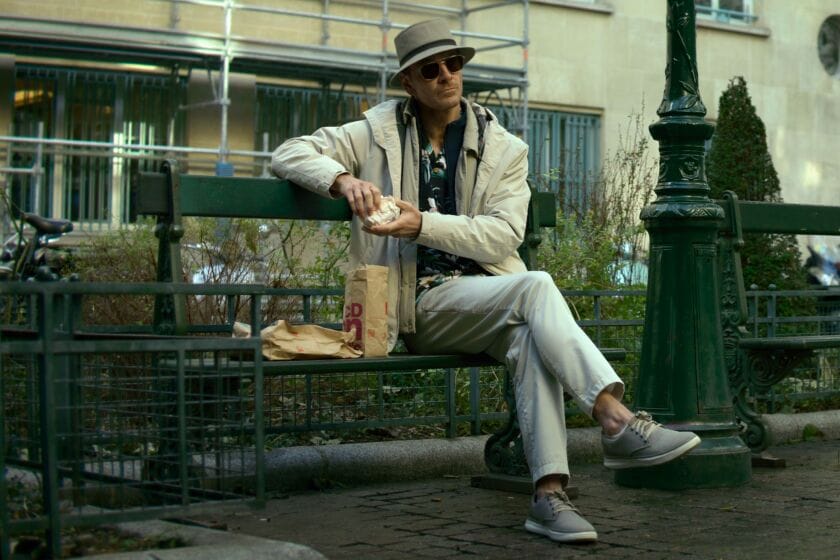
8. The Killer
“I was looking for a job and I found a job, and heaven knows I’m miserable now.”
The Netflix movie that knows what it's like to work at Netflix: in other words, to have a dehumanizing job, and worse, to be good at it. Accusations of “Le Samourai copycat” are not unfounded, but miss the forest for the trees—the system of 21st century capitalism is distinct from that of the 20th. It is not the clean cut, cubicle-ready man in a suit who owns the world; it’s the guy in the Sub Pop Records shirt. Capitalist realism finally found a home in the movies.
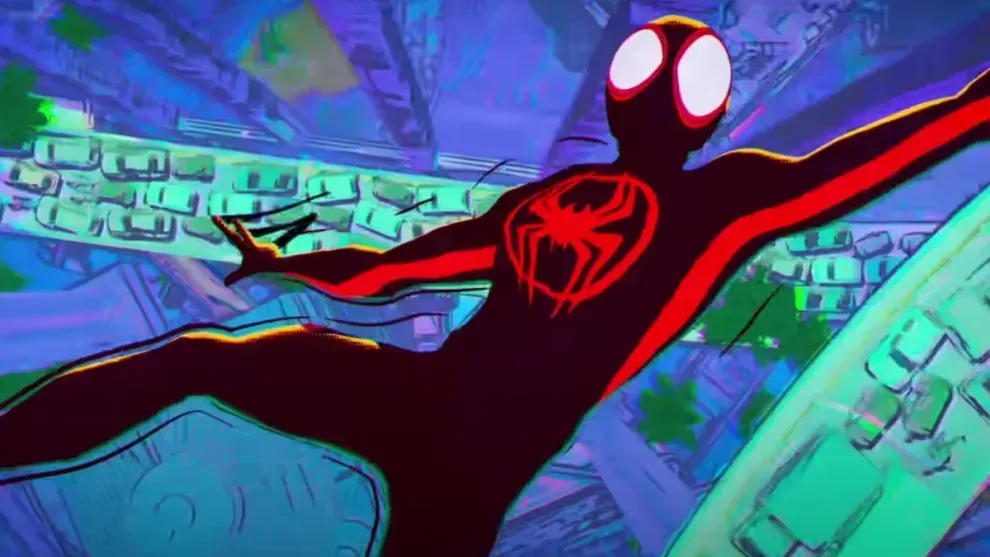
7. Spider Man - Across the Spider Verse
No superhero movie has captured my imagination since the Bush administration. There have been plenty of good superhero movies, to be sure, but none–not even AtSV's predecessor, Into the Spider-Verse, matches the breadth and depth of the vision here. There are images and emotional beats in ATSV that continue to thrill me and resonate deeply.
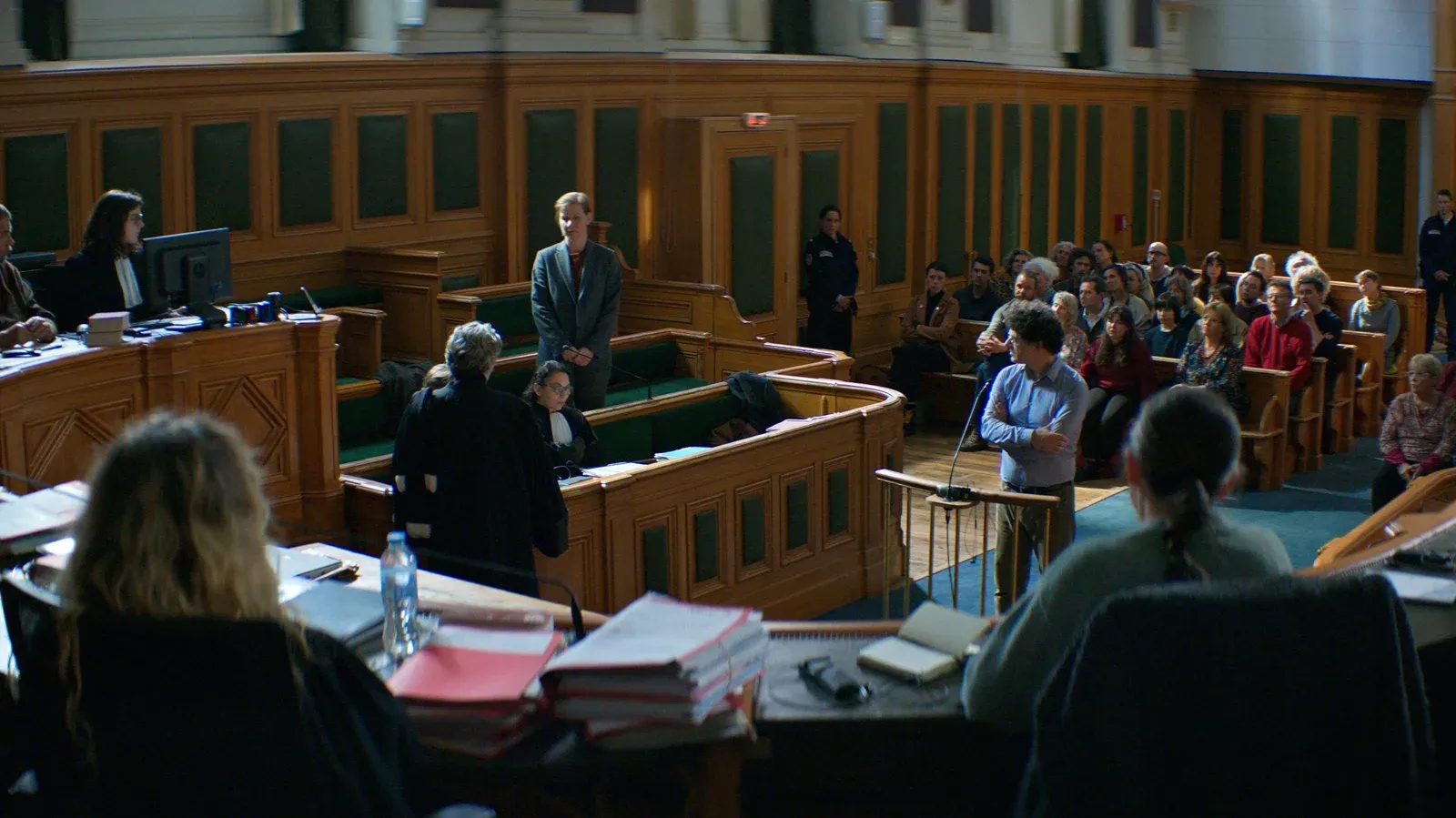
6. Anatomy of a Fall
The camera is alive in Anatomy of a Fall, Justine Triet’s gruesomely humanistic depression drama in Southeast France. I loved it not only because of the next-level camerawork–one need look only to Daniel’s first testimony, where the camera tracks back-and-forth from the prosecutor’s bench to the defendant’s, but never loses focus of Daniel, torn between the system he’s told to believe will bring and the mother he knows is innocent–but because it depicts depression in a very honest way, and placing it in the context of a murder mystery gives it a nice narrative propulsion. There’s the depression of the father who may or may not have committed suicide, of course, but the depression of our protagonist Sandra is precisely rendered and allows for the multiplicity of emotions the depressed person feels. I quite liked the Dardenne Brothers’ movie Two Days, One Night, another French movie about depression, but in it depression is a series of downs, downs, downs, as if Marion Cotillard is carrying the weight of ten people and is at any moment liable to collapse from exhaustion. But Sandra’s depression leaves room for the projection, fakery and manipulation that come from the shame of being a depressed person. I really appreciate that Sandra Huller’s performance emphasizes the dignity of her character despite the torrent of flaws that are presented in the form of the court proceedings.
It’s a little funny to understate the centrality of the murder mystery here, since it appears on the surface to be the movie’s raison d’etre. But I’d argue the fall we’re anatomizing is the one into melancholia, and how, when placed under the microscope of the legal system–depicted with radiant malevolence by Antoine Reinartz–the stories we tell ourselves about our lives begin to crumble. But, if we’re lucky, an ecstatic truth may emerge: that the bond between parent and child is greater, and more just, than the preconceptions of a prosecutor who looks and acts like Eminem.

5. De Humani Corpis Fabrica
The coldest movie of 2023, but only in the sense that it depicts with steel-eyed clarity the destruction and reconstruction of the human body. It felt like directors Lucien Castaing-Taylor and Véréna Paravel would find their way here eventually—the last film of theirs I saw, Leviathan (2013), is a psychedelic trip into the bodies (and maybe minds) of fish, analyzing, with an alien-seeming sense of wonder, the movement of these armless creatures and the faceless men who capture them for capital gain. It’s riveting.
So, too, is their most recent picture, De Humani Corpis Fabrica, which analyzes human surgery with the same sense of detached, wide-eyed marvel. Nearly a year on, the moments that remain with me include first-person perspectives of the use of hammers for surgery and into the psych ward, that, while derivative of Titicut Follies and not quite as gut wrenching, creatively implicates capitalism in its critique of medical industry in France: the film's final shot proves a haunting and powerful denouement, indicating that to be enmeshed in the French medical industry, in any capacity, is to be held prisoner in an open air insane asylum which sometimes plays great music.
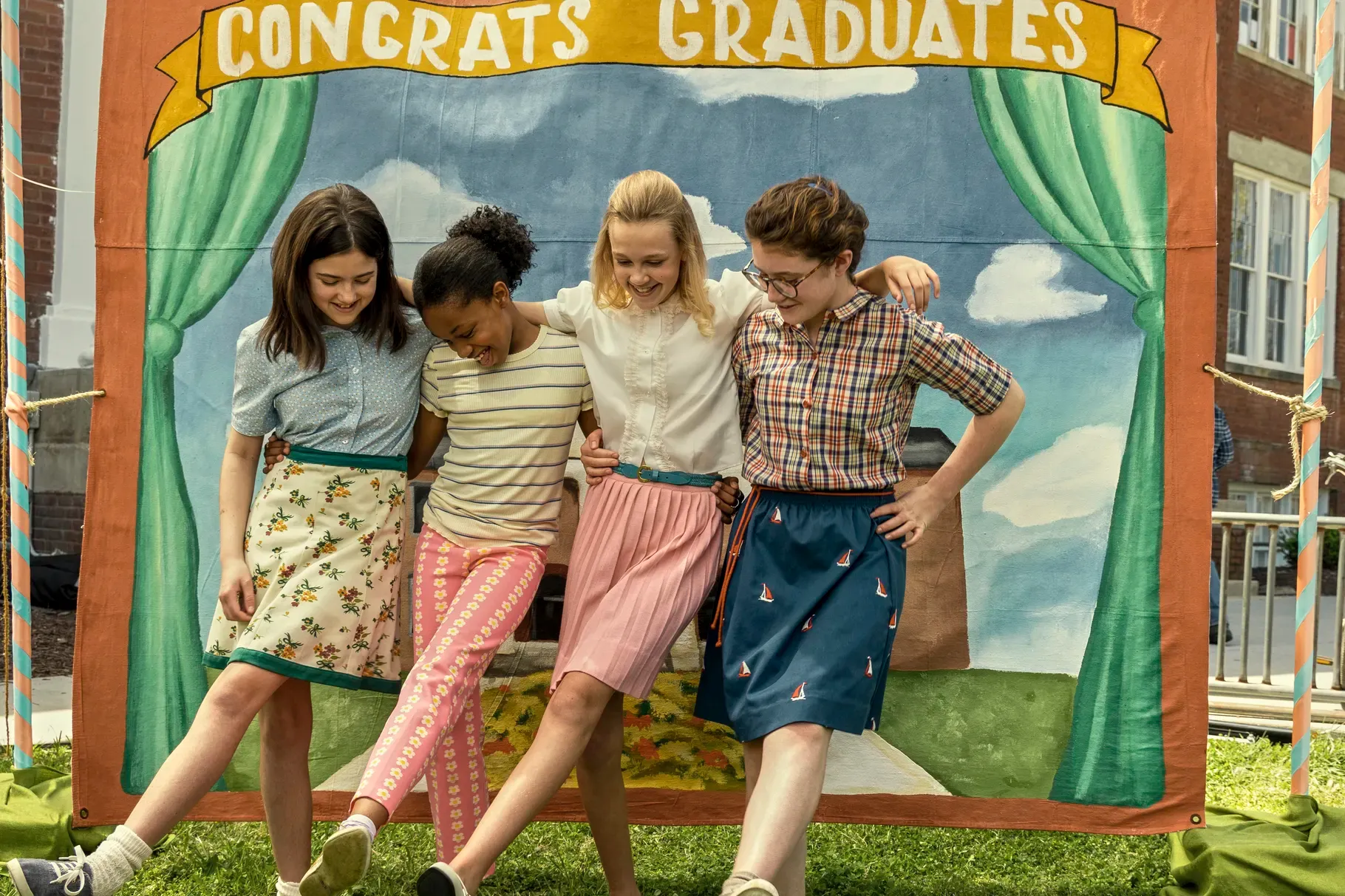
4. Are You There God? It’s Me, Margaret.
The warmest movie of 2023. To grant a teenage girl the autonomy and pain usually reserved—and then, not that often—for older characters is a mitzvah. Like its next door neighbor on the list, it evokes 70s American cinema while refraining from the navel gazing we see in a film like American Hustle. Maybe the key to throwback movies is by way of telling stories about children instead of cynical adults, so we--even if we aren't Jewish, or female, or born in Generation X--can use the milieu as a means by which to examine, gently, our own upbringing, our own identities, our own relationships to our families, our friends, and, chiefly, to ourselves. We're lucky to have Fremon Craig.
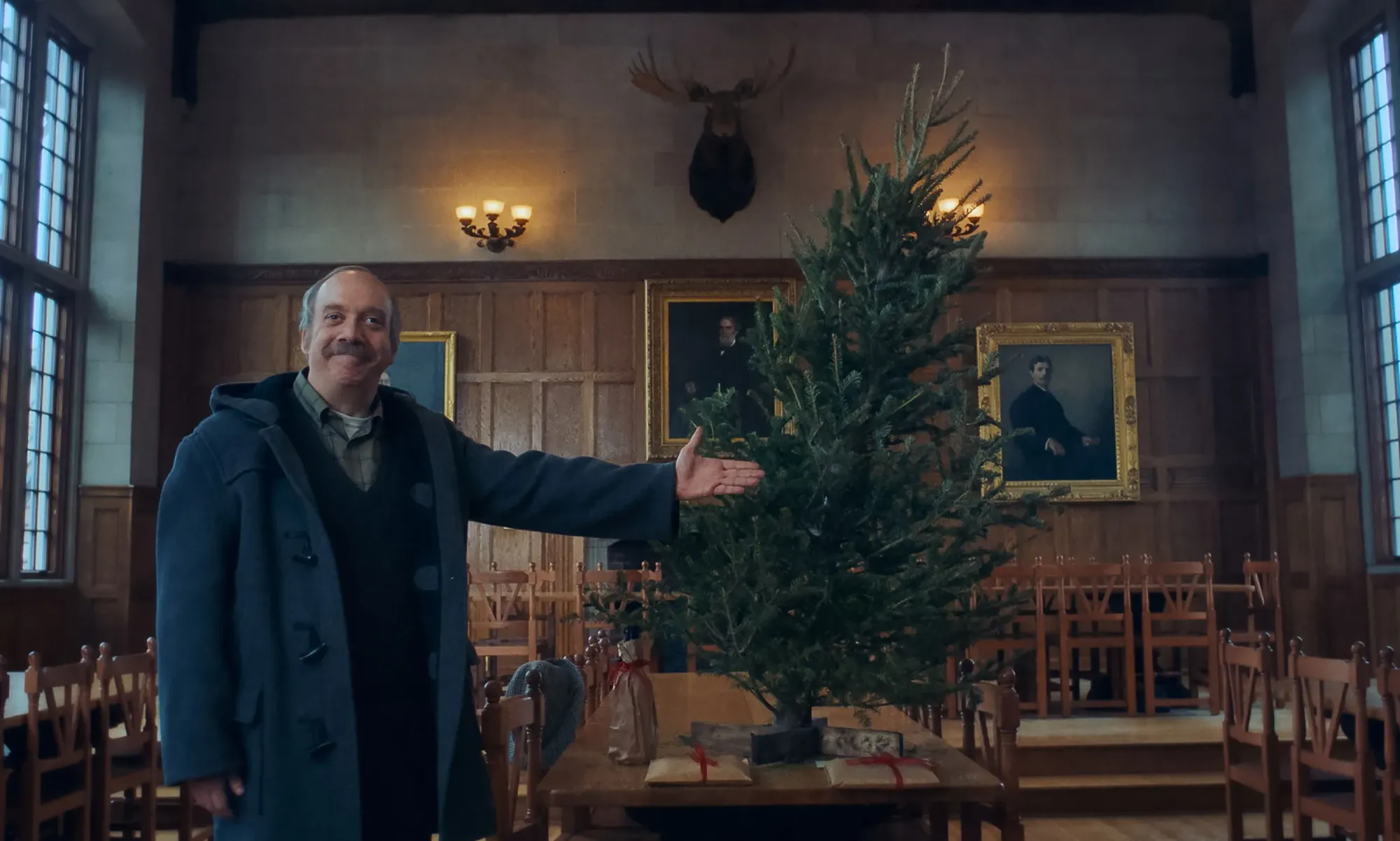
3. The Holdovers
It’s usually not hard for me to find something to say about a movie, but I had a hard time writing about this one. I think it’s because its retro spirit is so self-evident that it doesn’t take someone like me to say, hey, this resembles a Hal Ashby movie, because the movie itself is already offering that observation. But I found it:
A healthy blend of warm and cold; perhaps why this lands above the previous two. Giamatti goes hard in the paint here, lobbing erudite invective matched only by the performance in his other Alexander Payne movie Sideways. They just make magic together. Instantly fell in love with its depiction of three broken souls at sea, slowly realizing they aren't alone in the lifeboat. There's great bitterness in these characters, but it's a bitterness distinct from nihilism; intelligent people learning that over-intellectualizing can only get you so far moves me strongly. It’s a movie that feels like a big hug, and that hug does not come at the expense of its maturity. It is, in fact, a product of that maturity.
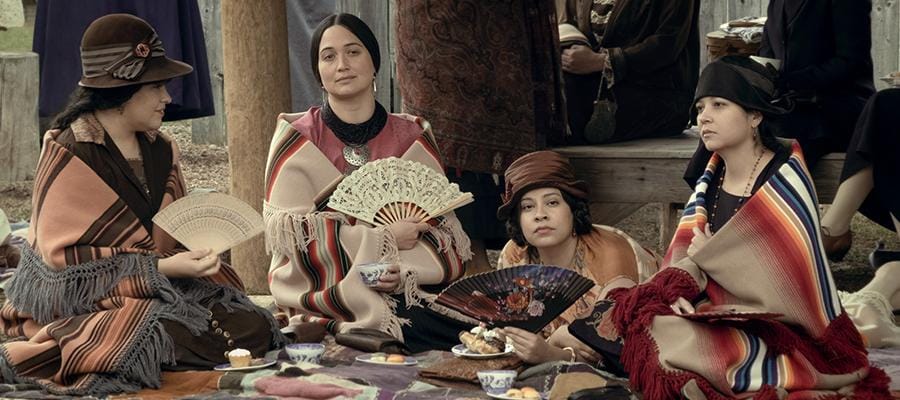
2. Killers of the Flower Moon
Killers pins down, or more specifically makes plain, the moral rot at the core of the American Dream that Scorsese has been circling most of his career and has finally laid bear: these men erase humanity from the American landscape replace it with the sensational stories they tell about themselves. To what end? The accumulation of wealth, its own continued metastasis. This is reflected somewhat in the film's $200 million budget; maybe it takes that kind of money to make a point this clear on the canvas of a Hollywood film.
Killers is an incendiary historical drama told with the understanding that even its creator cannot escape the Inferno: Scorsese, too, is complicit in the perpetuation of these power structures, and admits that telling a story delineating the brutalizing effect of these power structures is ultimately still insufficient. Yet Scorsese stops short of pat self-deprecation: he imbues Killers with as much curiosity as I've ever seen in his work. At 80 years old, he's still hungry to explore: the likes of Kurosawa, Malick, Dostoevsky, Dryer, and more than a little of James Cameron's Titanic sneaks in there, too.
DiCaprio imbues Ernest, in the early scenes, at least, with the same boyish charm he effortlessly exuded as Jack. Gladstone as Mollie gives wry, intelligent voice to a voiceless struggle on the mainstream stage. These contrasts, between the magisterial and the painfully interior, between love and hatred, between the sacred and the profane, are what make Killers such a special movie, and among Scorsese's best. (Which is to say, one of the best yet made.) I bow to Edward Said for a conclusion:
"This is the prerogative of late style: it has the power to render disenchantment and pleasure without resolving the contradiction between them. What holds them in tension, as equal forces straining in opposite directions, is the artist’s mature subjectivity, stripped of hubris and pomposity, unashamed either of its fallibility or of the modest assurance it has gained as a result of age and exile."
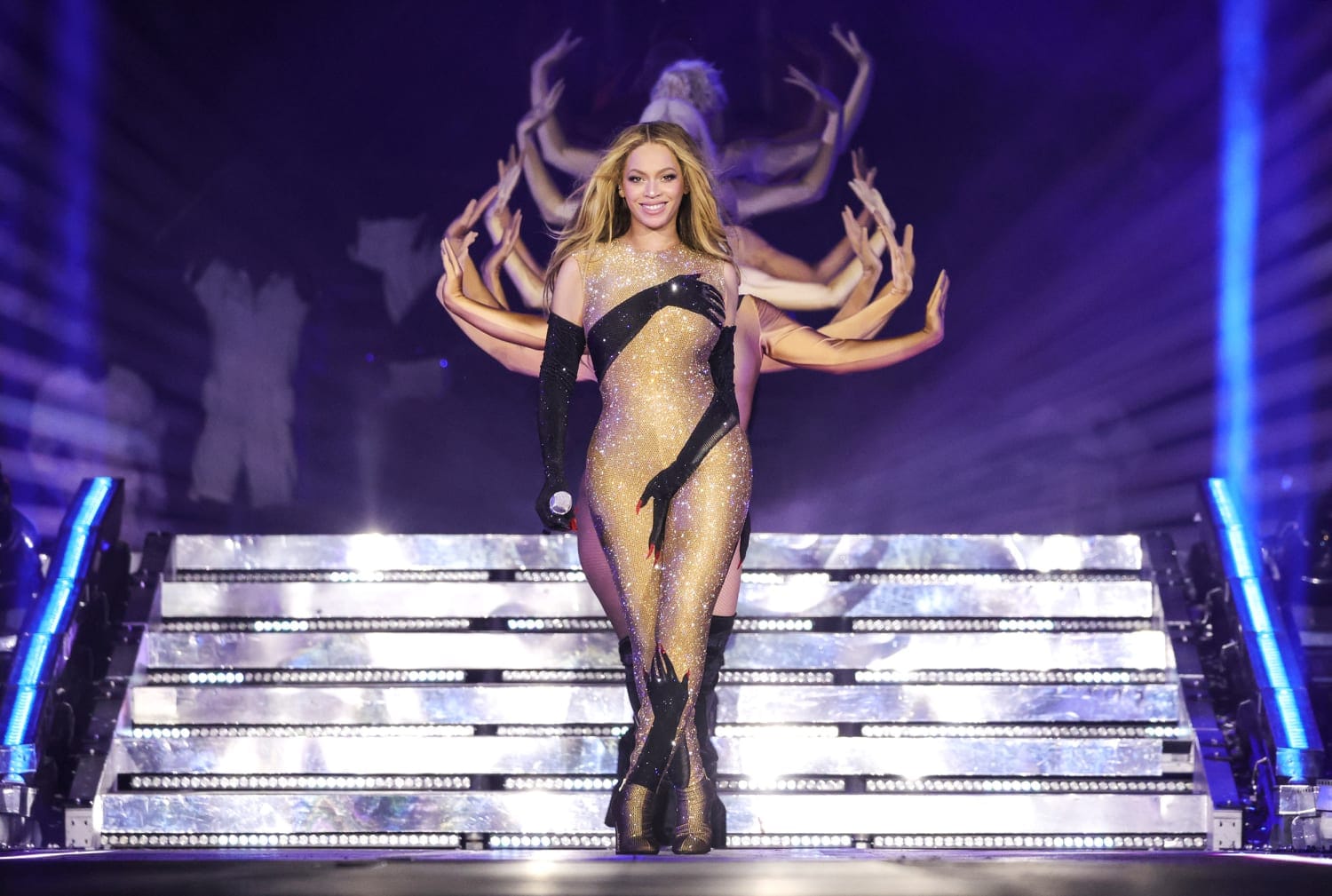
- Renaissance - A Film by Beyoncé
Didn’t care much for Renaissance the album. Interpolating dance hall legends does not a good dance hall record make, I thought. Why not just put on a Donna Summer record? But I have a theory regarding Beyoncé's output since Lemonade: the music is the aperitif for the main meal of the inevitable film. Blasphemy to some, I'm sure, but Beyoncé has become her own cottage industry and as such, there are as many ways to enjoy her output as there are pieces of output.
I went into Renaissance expecting a bravura concert film experience--Beyoncé proved she could do that with Homecoming--I did not think I would emerge from the theater declaring it a masterpiece, the confluence of cinematic strands as seemingly disparate as Metropolis, Tokyo Olympiad, and Paris is Burning. And maybe I am a little crazy in love to be pronouncing ecstatic nothings like that, but I can't help but feel, quite like I felt Homecoming was, that Renaissance is part of an evolution in movie language. Renaissance is not only in conversation with this history, but is supersizing it and inviting new generations of all shapes, colors, and identities to partake. It is two hands--one reaching back into cinema's past, and the other opening out into the future--and a joyous smile welcoming us to join in. It is a Science Fiction phantasmagoria, a celebration of the human body in motion, and a document of contemporary American community. It is the very epitome of what the movies can offer.




